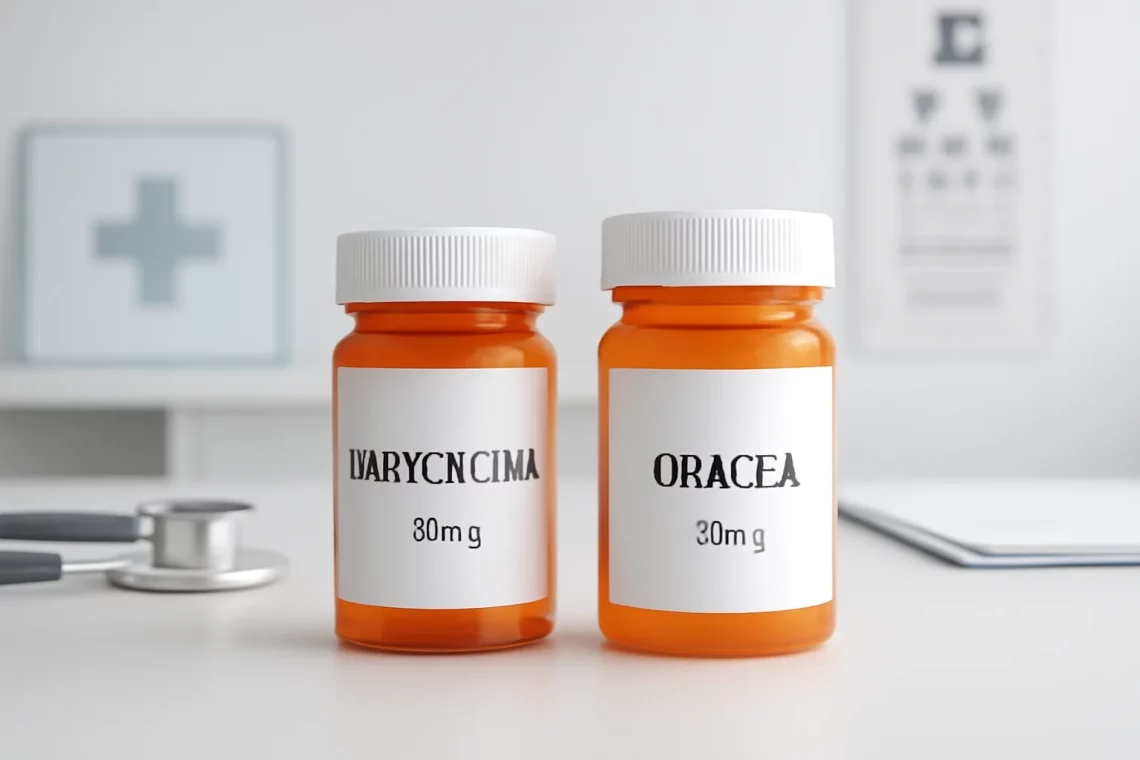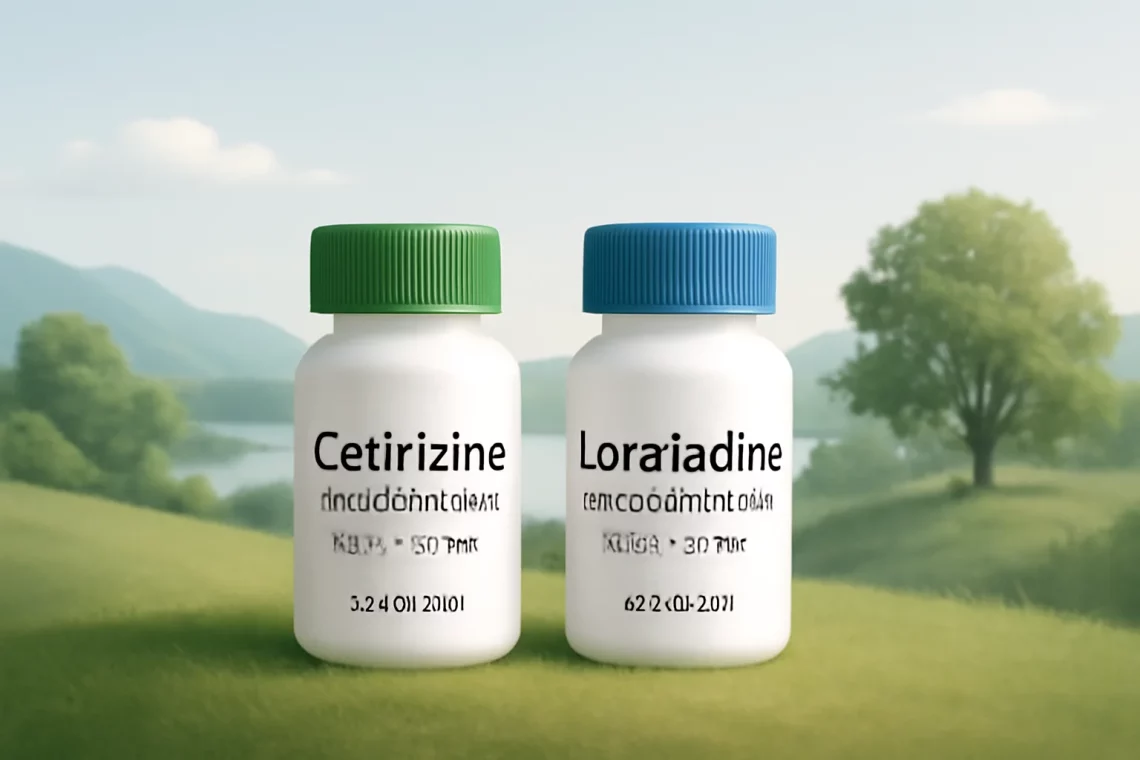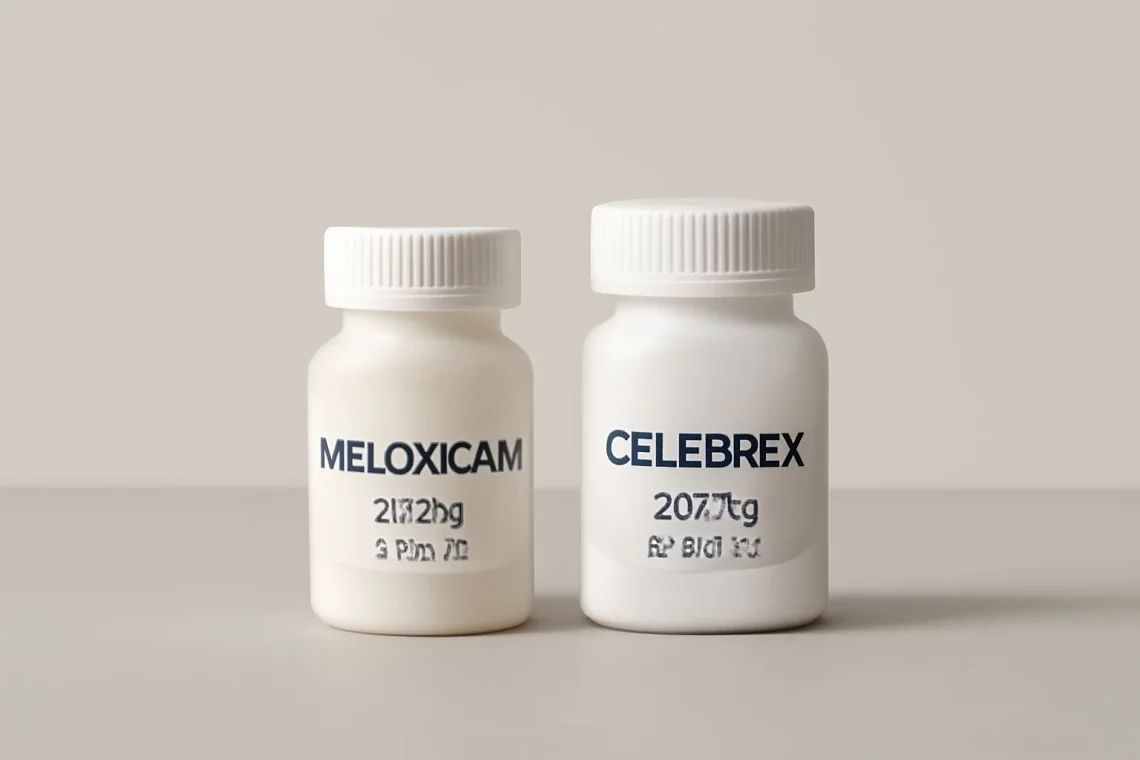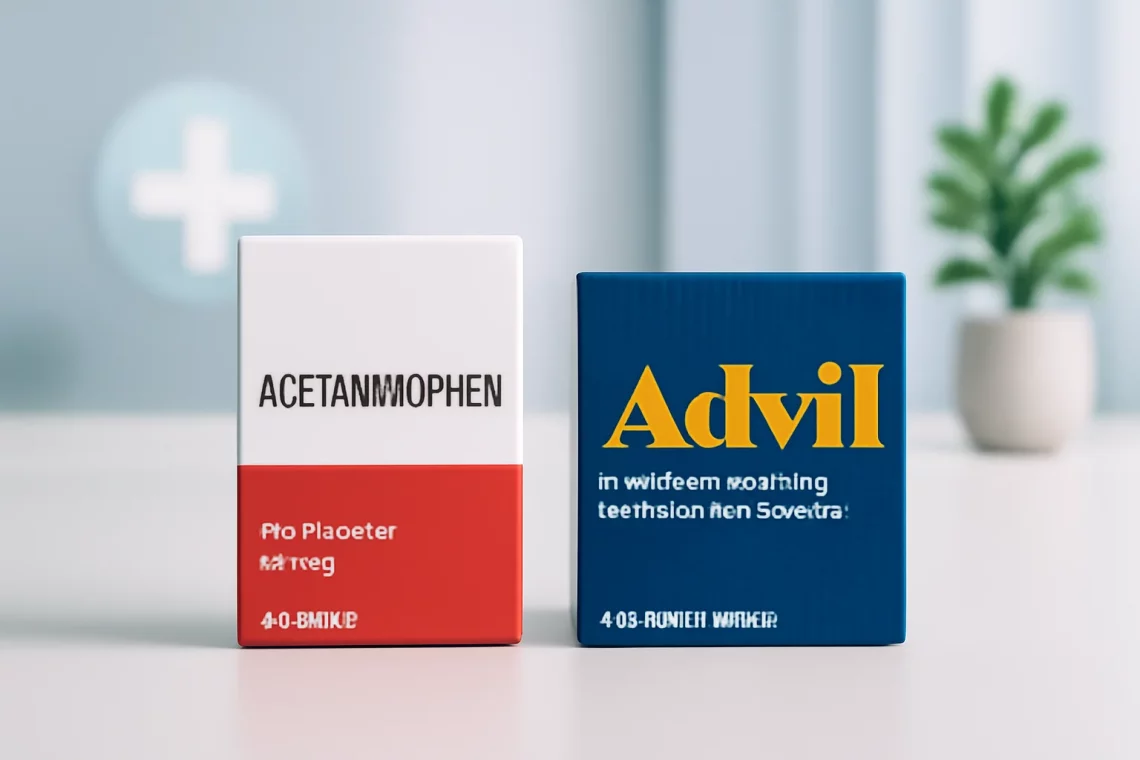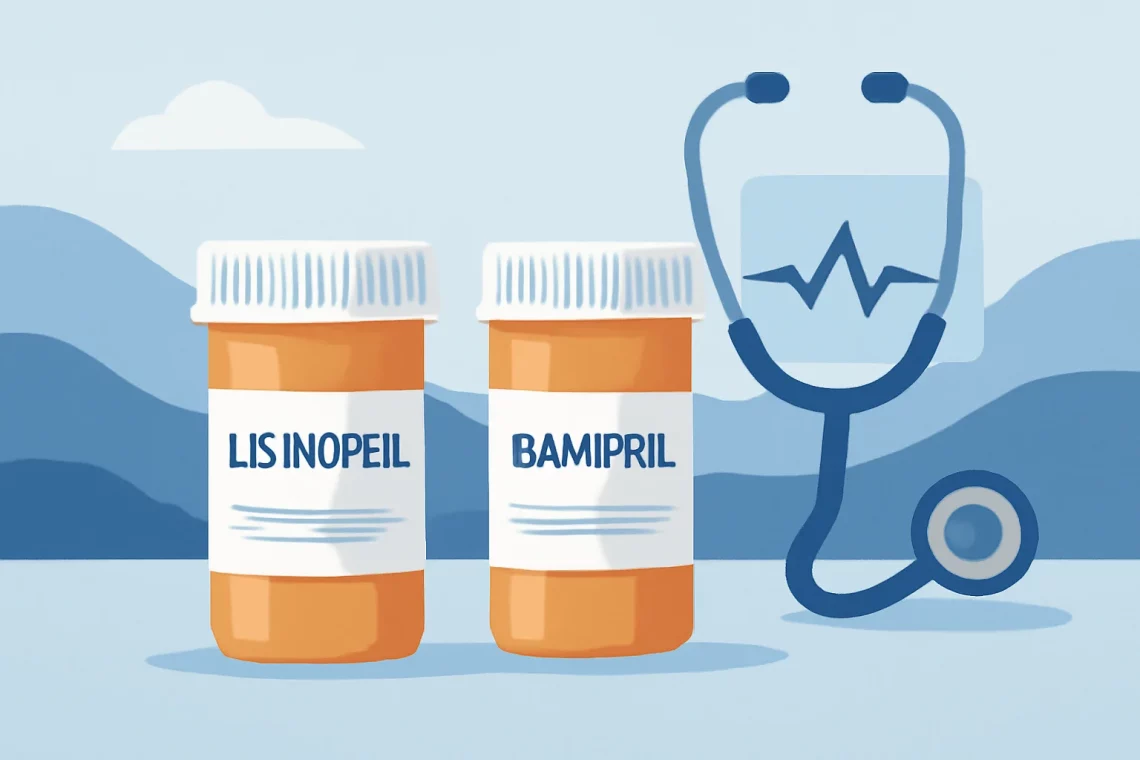-
Doxycycline vs Oracea: Key Differences and Uses Explained
Doxycycline and Oracea are two well-known medications commonly used in the treatment of various bacterial infections and skin conditions. Both belong to the class of antibiotics known as tetracyclines, but they have distinct applications, formulations, and mechanisms of action. Understanding the differences and similarities between these two drugs can help patients and healthcare providers make informed decisions regarding their use. Doxycycline is often prescribed for a wide range of infections, including respiratory tract infections, urinary tract infections, and even certain sexually transmitted infections. Its effectiveness against a broad spectrum of bacteria makes it a versatile option in the antibiotic arsenal. On the other hand, Oracea is a brand name for…
-
Cetirizine vs Loratadine: Which Allergy Medication is Right for You?
In the world of antihistamines, cetirizine and loratadine are two popular choices for individuals seeking relief from allergy symptoms such as sneezing, runny nose, and itchy eyes. Both medications belong to a class of drugs known as second-generation antihistamines, which are designed to alleviate allergic reactions while minimizing drowsiness, a common side effect associated with first-generation antihistamines. As seasonal allergies and allergic reactions become increasingly prevalent, understanding the differences between these two medications can empower consumers to make informed decisions about their health. Cetirizine is known for its effectiveness in treating both indoor and outdoor allergies, while loratadine is often favored for its non-drowsy properties. However, the choice between cetirizine…
-
Tramadol vs Gabapentin: Understanding Their Uses and Differences
Tramadol and gabapentin are two medications commonly used to manage pain and neurological conditions. Both drugs have distinct mechanisms of action and are prescribed for different types of ailments. While tramadol is primarily an opioid analgesic, gabapentin is classified as an anticonvulsant and is frequently used to treat neuropathic pain and seizures. The choice between these two medications can significantly impact a patient’s quality of life, especially when it comes to managing chronic pain or neurological disorders. Understanding the differences between tramadol and gabapentin is crucial for patients and healthcare providers alike. Factors such as efficacy, side effects, and the appropriate use of each medication play a significant role in…
-
Adderall vs Vyvanse Which ADHD Medication is Right for You
Adderall and Vyvanse are two of the most commonly prescribed medications for Attention Deficit Hyperactivity Disorder (ADHD). Both drugs are known for their effectiveness in improving focus, attention, and impulse control in individuals diagnosed with ADHD. However, despite their similarities, they possess distinct differences in formulation, mechanism of action, side effects, and overall user experience. Understanding these differences can be crucial for patients, caregivers, and healthcare professionals in making informed decisions regarding treatment options. As the prevalence of ADHD continues to rise, so does the need for effective management strategies. The choice between Adderall and Vyvanse can significantly impact an individual’s quality of life, and it is essential to consider…
-
Meloxicam vs Celebrex: Choosing the Right Pain Relief Option
When it comes to managing pain and inflammation, choosing the right medication can often feel overwhelming. With a wide array of options available, two popular medications that frequently come up in discussions are Meloxicam and Celebrex. Both belong to a class of drugs known as nonsteroidal anti-inflammatory drugs (NSAIDs), which are commonly prescribed for conditions such as arthritis, pain, and inflammation. Understanding the differences between these two medications is crucial for both healthcare professionals and patients. Each drug has its unique properties, mechanisms of action, side effects, and contraindications, which can significantly impact treatment outcomes. Whether it’s for short-term use after an injury or long-term management of chronic conditions, the…
-
Cymbalta vs Effexor XR: Choosing the Right Antidepressant for You
Cymbalta and Effexor XR are two prominent medications commonly prescribed for various mental health conditions, particularly depression and anxiety disorders. Both belong to a class of drugs known as serotonin-norepinephrine reuptake inhibitors (SNRIs), which function by enhancing the levels of serotonin and norepinephrine in the brain, neurotransmitters that play crucial roles in mood regulation. The growing prevalence of mental health issues has led to an increased focus on effective treatment options, making it essential for patients and healthcare providers to understand the differences and similarities between these two medications. As mental health awareness expands, so does the importance of informed decision-making regarding treatment options. Both Cymbalta and Effexor XR have…
-
Ciprofloxacin vs Augmentin: Comparing Antibiotic Effectiveness and Uses
Ciprofloxacin and Augmentin are two widely prescribed antibiotics, each playing a significant role in the treatment of various bacterial infections. While they are both effective in combating infections, they belong to different classes of antibiotics and have distinct mechanisms of action, spectrum of activity, and potential side effects. Understanding the differences between these medications can help patients make informed decisions about their treatment options. Ciprofloxacin is a fluoroquinolone antibiotic that works by inhibiting bacterial DNA gyrase, an enzyme crucial for bacterial replication. This makes it particularly effective against a variety of gram-negative bacteria, as well as some gram-positive organisms. On the other hand, Augmentin is a combination antibiotic that includes…
-
Acetaminophen vs Advil Which Pain Reliever Is Right for You
Acetaminophen and Advil are two of the most commonly used over-the-counter medications for pain relief and fever reduction. While both are effective in managing discomfort, they belong to different drug classes and have distinct mechanisms of action. Acetaminophen, known for its analgesic and antipyretic properties, is often recommended for mild to moderate pain, such as headaches and muscle aches. On the other hand, Advil, which contains ibuprofen, is a nonsteroidal anti-inflammatory drug (NSAID) that not only alleviates pain but also reduces inflammation. Understanding the differences between these two medications is essential for making informed choices about pain management. Many individuals may find themselves wondering which option is best suited for…
-
Lisinopril vs Ramipril: Which Blood Pressure Medication is Right for You?
High blood pressure, also known as hypertension, is a common condition that affects millions of people worldwide. It is often referred to as a “silent killer” because it may not present any noticeable symptoms until serious complications arise. Managing hypertension is crucial to reducing the risk of heart disease, stroke, and other health issues. Various medications are available to help control blood pressure, and two of the most commonly prescribed classes of these medications are ACE inhibitors. Lisinopril and Ramipril are both effective options within this category, but they have distinct characteristics, benefits, and potential side effects. ACE inhibitors work by relaxing blood vessels, allowing blood to flow more freely,…
-
Terbinafine vs Itraconazole: Which Antifungal Treatment is Better?
Terbinafine and Itraconazole are two antifungal medications commonly used in the treatment of various fungal infections. Fungal infections can range from superficial skin conditions to systemic infections that may affect multiple organ systems. These medications target different types of fungi and have distinct mechanisms of action, making them suitable for different clinical scenarios. When it comes to treating conditions such as athlete’s foot, ringworm, and nail fungus, the choice between Terbinafine and Itraconazole can significantly impact the effectiveness of the treatment. Both drugs are effective, but they differ in their pharmacokinetics, side effects, and specific indications. Understanding the nuances of each medication can empower patients and healthcare providers to make…
